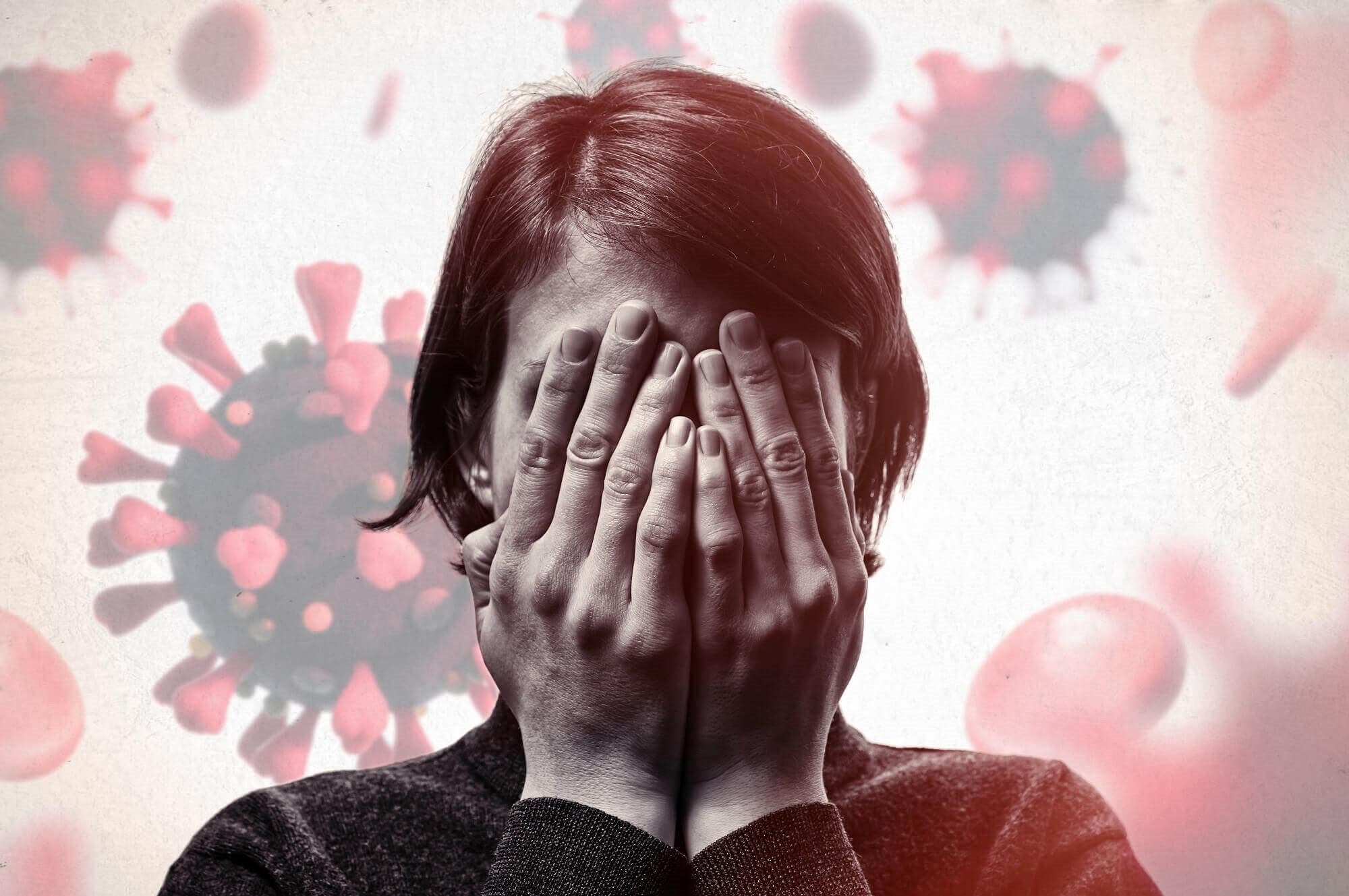History of psychological distress linked to lengthy Covid
When the distress of the mind and COVID collide, a lengthy period of infection is triggered.
-

About 40 million adults over 18 in the United States live with an anxiety disorder (Getty Images)
A new study revealed that if you suffer from typical psychological conditions, such as anxiety or depression, you may have a 50% increased risk of getting long Covid-19.
Breathing issues, cognitive fog, chronic coughing, changes in taste and smell, overwhelming exhaustion, trouble completing everyday living duties, and sleep disruptions can last months, if not years, even after the infection has cleared the body.
According to a study published this month in JAMA Psychiatry, people who self-identified as experiencing anxiety, despair, or loneliness, or were excessively anxious or worried regularly were more likely to have lengthy Covid-19.
"We found participants with two or more types of psychological distress before infection had a 50% higher risk of getting long Covid," said study co-author Dr. Siwen Wang, a research fellow in the department of nutrition at the Harvard T.H. Chan School of Public Health in Boston.
Around 40 million persons over the age of 18 in the United States have an anxiety illness, and over 21 million have suffered from serious depression, according to national statistics. Specialists revealed that several mental health problems frequently overlap, resulting in concurrent diagnoses.
Read next: COVID has taken severe mental health toll: WHO
More than a fifth of adults in the US (22%) and the UK (23%) say they often or always feel lonely, a Kaiser Family Foundation study said.
"Having higher levels of psychological distress prior to a Covid infection also increased the risk of getting long Covid by 50%," Wang said. "Those people also reported more symptoms seen in long Covid."
The study's findings could be used to support the concept that post-Covid disease is psychosomatic, which was a popular belief in the early days of the pandemic, according to Dr. Wesley Ely, a professor of medicine and critical care at Vanderbilt University Medical Center in Nashville, Tennessee. He was not a participant in the study.
Instead, the study's message should be that people with existing psychological distress are closer to the "disaster" of long Covid, said Ely, co-director of Vanderbilt's Critical Illness, Brain Dysfunction and Survivorship Center.
"Imagine 10 people are running a race, and you give five people a head start," Ely said. "Those are the people who already had a mental health issue -- they are just closer to the unfortunate finish line of getting long Covid."
The mind and the body
The notion that mental illness has a negative impact on the body is not novel. It's also a two-way street: chronic illness is highly linked to the development of depression and other psychiatric problems.
With common noninfectious disorders such as heart disease, "depression/anxiety/emotional distress do appear to play a role," said Dr. Joseph Bienvenu, a professor in the department of psychiatry and behavioral sciences at the Johns Hopkins University School of Medicine in Baltimore, in an email.
He was not involved in the study.
Read next: COVID-19 Increased Anxiety and Depressive Disorders
People suffering from significant depression are more prone to develop blood pressure problems and heart attacks. Insomnia has been related to chronic sadness, stress, and anxiety, and a loss of quality sleep is a major contributor to the development of obesity, type 2 diabetes, and other illnesses.
An associate professor of pulmonary and critical care medicine at Stanford University in California, psychological distress weakens the immune system, according to research coauthor Dr. Angela Roberts.
"Your brain and your immune system are very tightly interconnected," Roberts said. "Studies have shown when you're depressed or anxious, your immune system doesn't work as well against targets like viruses and bacteria."

 4 Min Read
4 Min Read








